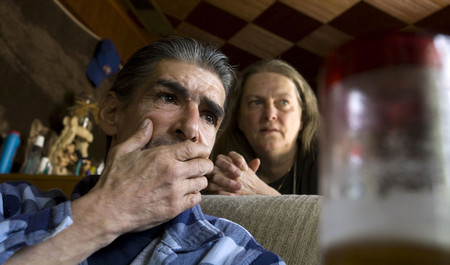THE BIG QUINQUENNIAL and global session of Adventists is in the history books. Before my memory banks get overdrawn, herewith some random post-GC observations—with which you may agree or not. These are my own thoughts, none of which came down from Mt. Sinai on stone tables, so they could well be flawed and most certainly are subjective.
- Having last attended a GC in New Orleans back in 1985, I noted some changes evident 25 years later. The attendees were far more global and less North American. Agree with me or not, but having encountered many tens of thousands passing by my booth in the exhibit hall, my clear impression is that generally speaking, North American members truly look more stressed and less happy than their international counterparts. Also, the North Americans seem driven…many of them rushing pell mell from one place to another. Many from other countries “strolled” and stopped to chat and get acquainted. “NAD Marthas” could learn something from their international “Mary” Adventists.
- Didn’t get a chance to take in many meetings in the Georgia Dome. For some reason, the entire event seemed planned by a gang of raging cholerics who kept the exhibits going at least ten hours a day and even much of the two Sabbaths. I heard many exhibitors complain of exhaustion and a wish they could have taken in more meetings. Evenings, I’d watch replays of some of the daily general sessions on Hope TV in my hotel room, and noticed that the crowds in the Dome itself were often sparse. Not surprising…they were jamming the aisles of the exhibit hall, where well-known music artists and preachers were just as available to hear as in the Dome. Maybe by the 2015 San Antonio GC, the planners can make some changes.
- Another disappointment before shifting gears: The GC-appointed constables (hall security) were far too aggressive. While I enjoyed chatting with a couple of easy-going Atlanta Police officers who happened to wander by, I was repeatedly warned by Adventist sheriffs riding Segways about stepping more than a couple of feet into the aisle next to my booth to call the attention of passers-by to the product we were offering (a free book). These temp lawmen seemed quite smitten with their own authority and were far less than congenial in dispensing their directions.
- The Big Event this time around was the election of a new world president. His second-Sabbath sermon left no question as to where he stands. Without challenge, he has a long resume of administrative experience in the church. And his election will be welcomed by those who have yearned for a return to a more conservative and traditional Adventism. Those of a more progressive outlook are already voicing their disappointment in Spectrum Magazine and Adventist Today. Just as in the political world, we’ve become a far more polarized nation, I would anticipate that polarization will become an increasing reality in the church up ahead. Whether this GC results in a post-Glacier View-style exodus of scholars and other progressives, I can’t predict. But such an outcome is possible.
- The session theme was “Proclaiming God’s Grace.” If indeed this theme can become both the message and mission of the church, perhaps unity can yet result in this church of countless nations, cultures, and viewpoints. I personally could have wished that the phrase had been explored in depth at the session, especially in the main sermons. The words did show up, but rarely, it seemed to me, with any expansion. I’d have profited from hearing more about grace in terms of Christ’s free gift of salvation…more about the Cross as His greatest gift of grace to you and to me.
- Maybe it’s just me, but it seems that while music and musicians in the church have never been better (Wintley Phipps, for example, holding a final note till you feared he might turn blue!), it’s harder than ever to find preaching that really stirs or nourishes. We could use a new generation of men who know how to share God’s fire from the pulpit. I’m not talking about the screechers and shouters who emulate used-car pitchmen. I’m talking about messages that go deep into the Word to place God’s gold in our hands for another week of living in this hard world.
- While meeting old friends (the only kind I seem to have left at this stage of life!) and making some new ones is always a pleasure, I’m wondering, in this digital age of instant global communication, if some of the functions of this huge sessions could happen at greater cost savings. Could our leadership plan for more to be done via video conferencing and less in person? Could the plenary sessions take place “Net-Evangelism”-style in venues far and wide, rather than in a massive sports dome? And do our leaders really exemplify good stewardship by booking nearly everyone into the most expensive lodging in town…the Omni, the Embassy, the Hyatt, and other upscale hotels? Are we “above” discount or economy lodging here in the 21st century?
- I was gratified that apparently the same constables about whom I reported above, did a good job of keeping the wild-eyed offshoots, time-setters, “Adventists as Babylon” promoters, and other assorted examples of fruity nuttiness off the main premises. Only a few managed to sneak into the exhibit hall to peddle their “you’re all damned” CDs and DVDs…and the denominational gendarmerie chased off the wackos in short order.
- Atlanta in June/July is no place to be outdoors. Temps of 90-plus with humidity to match! I’d rather be in sinful Las Vegas at 115 degrees with 7 percent humidity, than in Atlanta at 90/90.
Logistics, theology, stewardship, and other considerations aside, I was personally heartened to meet many sincere Christians for whom a relationship with Jesus is paramount, trumping all else. I was heartened too to realize that God will work wherever He can, through any committed and open channel. Many amazing and inspiring things are happening in this world of ours, often unknown and unheralded. I was heartened to see the potential of young people undamaged by the cynicism of time, filled with optimism and zeal, and who—blissfully unaware that something can’t be done—proceed to just go out and do it.
I’m most heartened of all by knowing that God is bigger than any church or the sum total of its challenges…that He is an expert at winning us all with love…and that He is the one unchanging, reliable constant in a world and church in perpetual change. What might happen were Jesus Himself—His love and salvation and knowing Him—to become all-important to the church? Really…what might happen?





